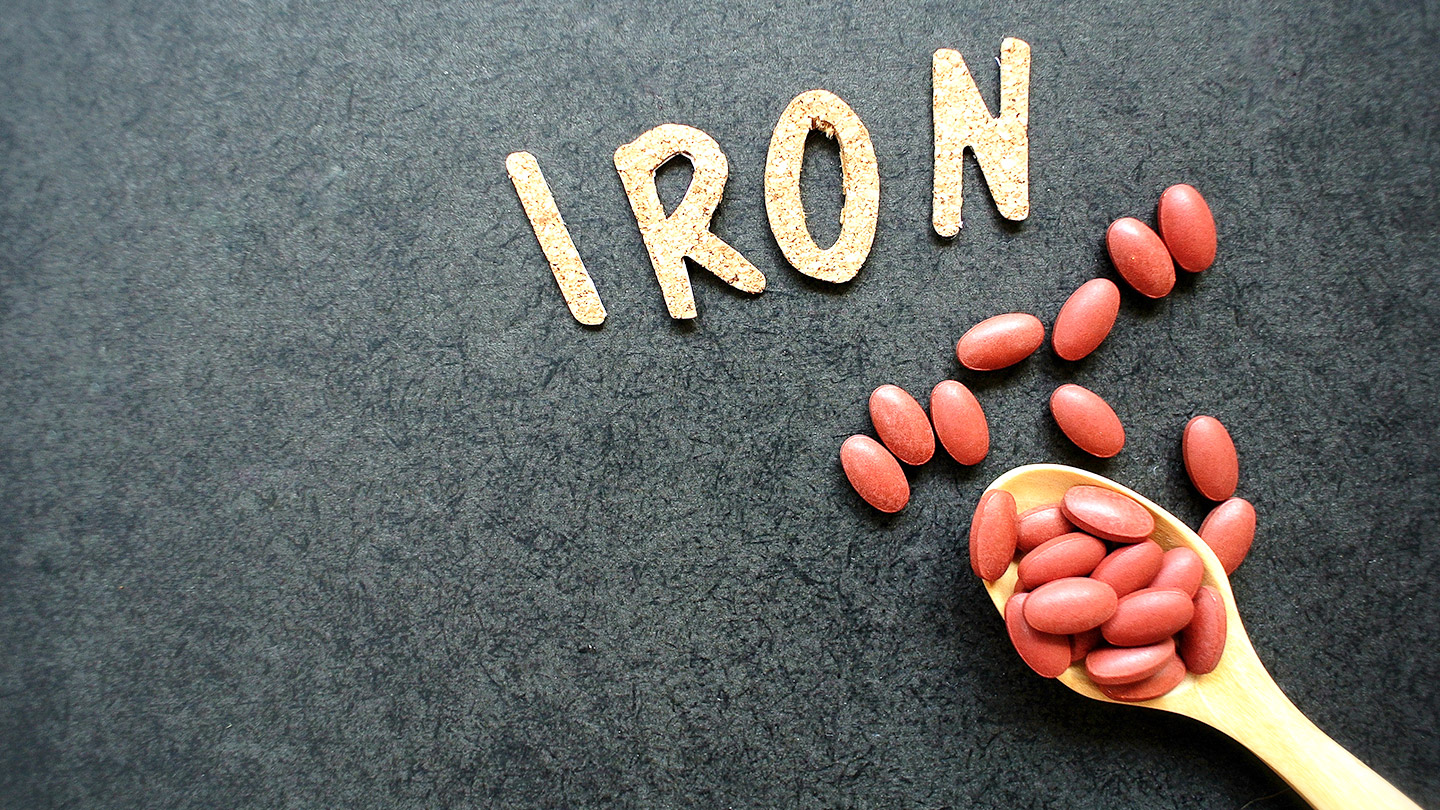Nutrition
Do You Have Brittle Nails And Feel Fatigued All The Time? You Could Be Deficient In This Mineral
Iron is an important nutrient that many of us are running low on. Moreover, symptoms of iron deficiency anemia are often hard to pinpoint. So, what happens if you don’t get enough iron? Find out here.

Iron is needed to transport oxygen through our bodies. How can a nutrient have such control over our body? Let me explain: iron is a vital component in hemoglobin and hemoglobin is present in blood’s red blood cells. Oxygen is supplied through blood and hemoglobin in the blood carries the oxygen. As a result, without iron, our body won’t have enough red blood cells to carry around the oxygen. The condition that arises due to iron deficiency is anemia.
A study in the Journal of the American Society of Hematology, 2019, says that over 1.2 billion people suffer from iron deficiency worldwide. Another study from the Indian Journal of Hematology and Blood Transfusion suggests that the number of pregnant women suffering from iron deficiency in India is among the highest in the world. WHO database confirms that over 85% of Indian women are prone to anemia. What causes such a high prevalence of iron deficiency?
Related Story: How to Eat Right During Pregnancy?
Nutritional deficiency of folate, iodine, zinc, and vitamins aid as a trigger for anemia, however, the main cause of anemia is Iron Deficiency. Further, it is the root cause of many genetic diseases related to hemoglobin, says WHO.
Apart from not consuming enough iron, what are the main causes of Iron Deficiency?
1. Heavy loss of blood from the body: Blood houses iron, so the loss in blood equals loss in iron. Blood loss need not be just from accidents and injury. In most cases, women with heavy periods are at risk of iron deficiency. That apart, chronic loss of blood due to conditions like peptic ulcer, hiatal hernia, and colorectal cancer can also lead to iron deficiency.
2. Body’s inability to absorb iron: Celiac disease is an intestinal disorder that affects the intestine’s ability to absorb nutrients. In other cases, if a part of your small intestine is removed or injured due to an accident, the body cannot absorb a sufficient amount of iron.
3. The body should increase iron stores during pregnancy: During pregnancy, the iron must be compensated for the increased blood volume of the women as well as the fetus.
4. Last but the most important cause is the lack of iron in your diet: The body’s source of iron is the food you intake. If you eat less iron, over time you will gradually be deficient in iron.
Related Story: How normal is your Period?
Symptoms of Iron-deficiency
Most of the time iron deficiency goes unnoticed because symptoms of iron deficiency anemia are mild. Here is a list of signals that your body sends out to warn you of iron deficiency.
1. Extreme weakness and fatigue
2. Breathlessness, chest pain
3. Increase in heart rate
4. Lightheadedness and dizziness
5. Headache
6. Cold hand, feet, and tongue soreness
7. Brittle nails
8. Children with anemia have a poor appetite
Related Story: Signs of Iron deficiency and Ways to Boost Iron Absorption
Diagnosis and treatment
In case you experience the symptoms for a long time, we suggest you check in with a health care specialist. It is advised not to take any self-medication because excess iron is harmful to our health. Now, let’s see what actions the doctor will take on suspecting iron deficiency.
1. Test the size and color of red blood cells. In case of anemia, the red blood cells will be small and pale.
2. Checking the number of red blood cells in blood volume which is generally between 35-45%
3. Check the hemoglobin levels, lower levels are a strong indicator of “anemia”.
4. Finally, check the level of ferritin. Ferritin is a protein that helps in storing iron, thus, a low level of ferritin indicates iron deficiency.
5. That apart, the doctor may run a few additional tests to understand the underlying cause. Those tests are endoscopy, colonoscopy, and an ultrasound to search for any signs of internal bleeding.
Related Story: Save a Life- Donate Blood
Iron-Rich Foods
By keeping a track of your diet and iron intake, anemia can be easily dodged. Here is a list of foods rich in iron
1. Red meat like pork, beef, lamb, and turkey
2. All shellfish are high in iron. Seafood like clams, oysters, and mussels are good sources of iron.
3. Beans and peas are also rich in iron content.
4. Dark leafy vegetables like spinach, bok choy, kale, and mustard greens are good supplements of iron.
5. Dry fruits like raisins, apricots, and dates are healthy snacking items that are rich in iron.
6. Whole grains like wheat, millets, oats, brown rice, and quinoa contain iron
7. Nuts (pistachios, cashews, and almonds) are also good sources of iron.
That is not all, sometimes our body needs a little motivation to absorb iron. Vitamin C is well known to enhance the absorption of iron. Thus, eating vitamin C-rich foods like broccoli, grapefruit, kiwi, melons, tomatoes, oranges, and peppers will supply vitamin C to our body. In turn, the body will also absorb its dose of iron.
EXPLORE MORE
That constant urge to snack may have less to do with food and far more to do with water. Dehydration doesn’t always announce itself as thirst, and that misunderstanding changes how, when, and why we eat.
Five thoughtful breakfast combinations that work with diabetes, PCOS, thyroid issues, inflammation, and heart health.
From fibre and protein to gut health and mindful meals, these are the healthy eating lessons that stood out in 2025!
Bloating isn’t just about overeating or bad food choices. According to expert nutritionist Dr Lakshmi Kilaru, it’s often the result of multiple factors. Keep reading to know more.






.jpg)
.jpg)

.jpg)
